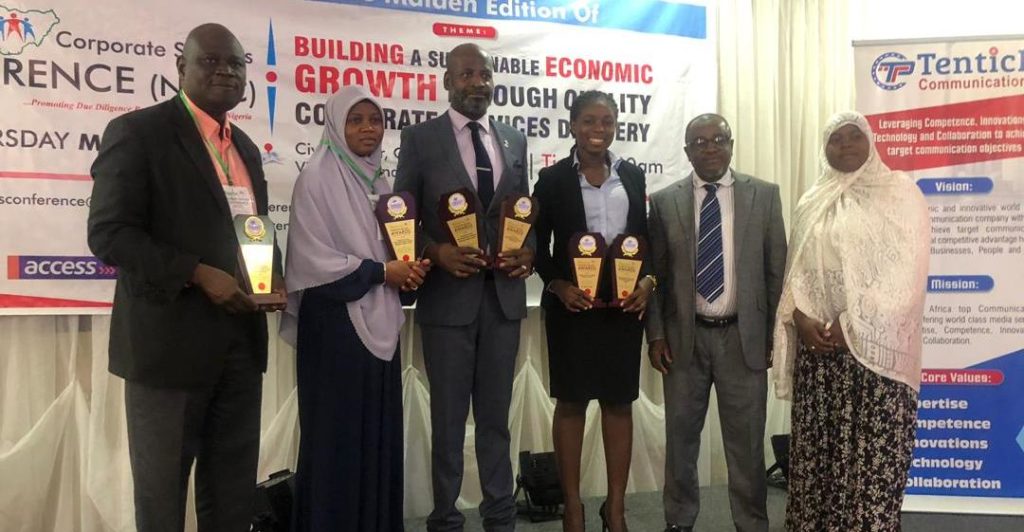The non-observance of best practices, due diligence, business ethics
They argue that in Nigeria, business people, corporate organizations and individuals cut corners by shunning ethics for reasons best known to them. This is worrisome and capable of derailing the economy further.
At the conference with the theme, Building a Sustainable Economic Growth through Quality Corporate Services Delivery, organized by TenticP Communications, the experts noted that contemporary economic development at a time when observing global best practices, due diligence, business ethics and corporate governance are being amplified by stakeholders in both public and private sectors.
First to note this at the event is the Executive Chairman of Federal Inland Revenue Services, Mr. Babatunde Fowler. According to him, a country’s corporate governance system affects the degree to which tax changes affect the growth (or not) of tax revenue.
Fowler, who was represented by Mr. Abolade Kehinde, a Deputy Director at FIRS, posited that in a good corporate governance environment, controlling shareholders will have too little incentive to divert income to avoid tax especially when they are accountable to other investors.
“Tax revenue increases can only be sustainable when taxpayers adopt good corporate governance, which is checked by strong enforcement policies. We also believe that increased tax enforcement also leads to substantial organizational changes in the targeted companies, changes that make managerial diversion more difficult,” he said.
Supporting the FIRS’s Boss, Mr. Muda Yusuf, Director General, Lagos Chamber of Commerce and Industry, admitted that the discussion on Quality Corporate Services Delivery is timely, because given the structure of the Nigerian economy, at no other time is the conversation on quality corporate service delivery in private and public sectors more appropriate than now.
“As we work to transform our economy from being resource based to a knowledge-based, innovation and technology driven economy for the good of all, it is just right to begin to look at the issues of Quality Corporate Services Delivery,” he said.
The LCCI boss, who served as the keynote Speaker at the event, noted that life is all about services- at every point you are either given a service or receiving one. It is theoretically and empirically established that services can lead economic transformation through direct, indirect, induced and second order/ productivity effects.
He explained that withthe change in the structure of the Nigerian economy from a real sector dominated system to services led economy, the services sector has become the largest sector in the economy, contributing 52.62percent to GDP in 2018. It also contributes the largest proportion of employment at 57.4 percent.
Having this enormous human resource and the demographic advantage, Yusuf advised Nigeria must focus on inculcating a culture of professionalism and ethical conduct in its service vendors.
Meanwhile, in her welcome address,Nahimah Ajikanle-Nurudeen, Managing Director/Lead Strategist at TenticP Communications Nigeria Limited, noted the importance of best practice, due diligence, business ethics and corporate governance cannot be over-emphasised.
“As Nigeria strives towards economic advancement, it is our challenge to promote corporate governance within Nigeria business community because when a nation gets it right by doing the right thing, the country can adopt and run with the philosophy of best practices, it will significantly improve the healthcare, education, governance, food security, social harmony and so on,” she said.
She added that Nigeria has made significant progress in its services sector, becoming a one of the leading corporate service providers in the continent of Africa. “Our banks have registered their footprint in many African countries, we have a robust Business Process Outsourcing (BPO) and others, providing diverse services to businesses and governments. These are immense economic opportunities we must optimized and unleash for tangible, sustainable economic deliverables,” Nahimah stressed.





